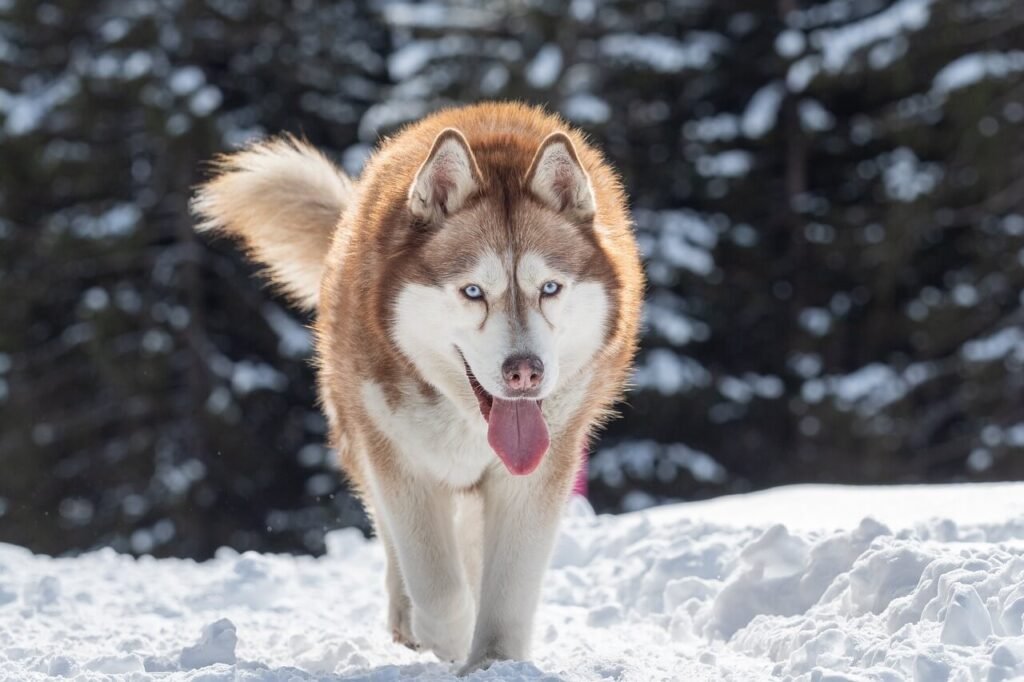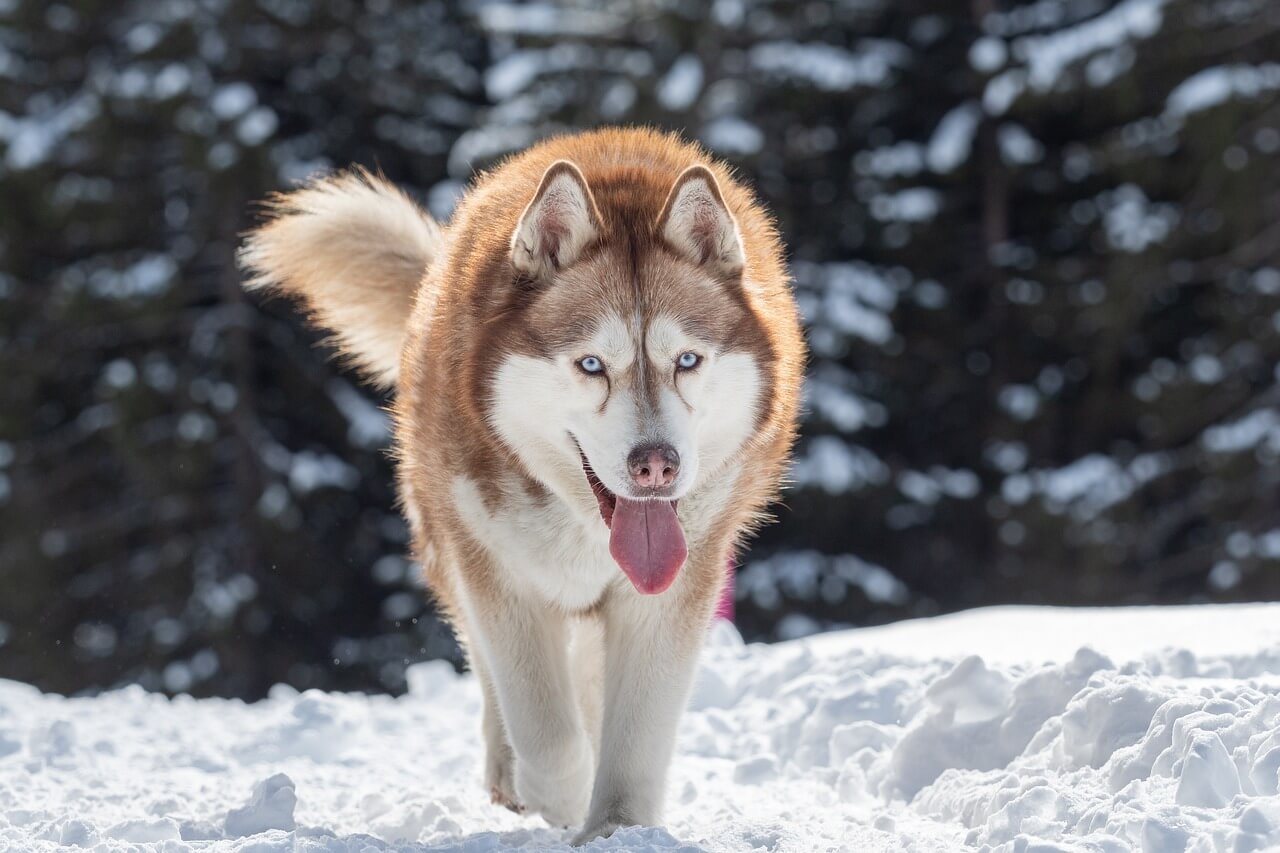The Ultimate Guide to Choosing the Best Dog Food for Huskies
Huskies are more than just pets; they’re family members with unique personalities, boundless energy, and striking beauty. Known for their wolf-like appearance and playful nature, these dogs require special care, especially when it comes to their diet. Feeding a husky isn’t as simple as grabbing any bag of dog food off the shelf. Their dietary needs are specific, influenced by their high energy levels, thick coats, and potential health concerns. In this blog post, we’ll explore everything you need to know about selecting the best dog food for your husky, ensuring they stay healthy, happy, and full of life.
Key Nutritional Needs of Huskies
Before diving into specific food recommendations, it’s essential to understand what makes a husky’s nutritional needs unique. These dogs are active, intelligent, and prone to certain health issues, all of which influence their dietary requirements. Here are some key factors to consider:
High Protein Content
Huskies thrive on diets rich in protein, as it supports muscle development and overall energy levels.Moderate Fat Intake
Fat is crucial for maintaining their thick double coat and providing sustained energy, but too much can lead to weight gain.Balanced Carbohydrates
Carbs should be limited and sourced from whole grains or vegetables to avoid digestive issues.Essential Fatty Acids
Omega-3 and omega-6 fatty acids are vital for skin and coat health, reducing shedding and promoting shine.Joint Support Ingredients
Glucosamine and chondroitin are beneficial for maintaining joint health, especially as huskies age.
Understanding these nutritional pillars will help you make informed decisions about your husky’s diet. Remember, every dog is unique, so tailoring their food to their specific needs is key to their well-being.
Top Ingredients to Look For in Husky Dog Food
When shopping for dog food, reading the ingredient list is crucial. Huskies benefit from high-quality ingredients that support their active lifestyle and overall health. Here’s a breakdown of what to look for:
Real Meat as the First Ingredient
Look for foods where real meat like chicken, beef, or salmon is listed first, ensuring a strong protein foundation.Whole Grains or Grain-Free Options
Whole grains like brown rice or grain-free alternatives like sweet potatoes provide energy without causing digestive upset.Fruits and Vegetables
Ingredients like blueberries, carrots, and spinach add vitamins, minerals, and antioxidants to the diet.Probiotics for Digestive Health
Probiotics improve gut health, aiding in nutrient absorption and reducing the risk of diarrhea or constipation.Natural Preservatives
Opt for foods preserved with natural ingredients like vitamin E and C instead of artificial preservatives.
Choosing a dog food with these ingredients ensures your husky gets the nutrients they need to thrive. Always prioritize quality over cost when it comes to your furry friend’s health.
Check this guide 👉5 Best High-Fat Dog Foods for Ultimate Energy & Health!
Check this guide 👉5 Best Grain-Free Dog Foods for Ultimate Health!
Check this guide 👉5 Best Gluten-Free Dog Foods for Ultimate Health Boost!

Nutritional Component | Why It Matters for Huskies |
|---|---|
High-Quality Protein | Supports muscle growth and energy levels |
Omega-3 Fatty Acids | Promotes a healthy coat and reduces shedding |
Moderate Fat Content | Provides energy without causing weight gain |
Joint Health Supplements | Prevents arthritis and supports mobility |
Digestible Carbohydrates | Ensures proper digestion and avoids bloat |
Common Mistakes to Avoid When Feeding Huskies
Even well-meaning pet owners can make mistakes when feeding their huskies. These errors can lead to health problems or nutritional deficiencies. Here are some common pitfalls to steer clear of:
Overfeeding
Huskies don’t require as much food as you might think, and overfeeding can lead to obesity.Ignoring Portion Sizes
Always follow the recommended serving sizes based on your dog’s weight and activity level.Feeding Low-Quality Kibble
Cheap, filler-heavy food lacks the nutrients huskies need and can cause long-term health issues.Skipping Hydration
Ensure your husky always has access to fresh water, especially if they’re eating dry kibble.Not Monitoring Allergies
Watch for signs of food allergies, such as itching or digestive upset, and adjust their diet accordingly.
Avoiding these mistakes will help keep your husky in peak condition. A balanced diet paired with attentive care is the recipe for a happy, healthy dog.
Benefits of Feeding Your Husky a High-Quality Diet
Investing in premium dog food pays off in numerous ways, benefiting both your husky’s health and your peace of mind. Here are some advantages of feeding your husky a high-quality diet:
Improved Energy Levels
A nutrient-rich diet fuels your husky’s active lifestyle, keeping them energetic and playful.Shinier Coat and Less Shedding
Quality ingredients promote a glossy coat and reduce excessive shedding.Better Digestive Health
Easily digestible foods minimize stomach issues and ensure optimal nutrient absorption.Stronger Immune System
A balanced diet boosts immunity, helping your husky fight off illnesses.Longer Lifespan
Proper nutrition supports overall health, potentially extending your husky’s life.
Feeding your husky the best food available is an investment in their future. The benefits far outweigh the costs, ensuring a vibrant and fulfilling life for your furry companion.
Understanding Husky-Specific Health Concerns
Huskies are prone to certain health issues that can be influenced by their diet. Addressing these concerns through proper nutrition is essential for keeping them in optimal condition. Here’s what you need to know:
Hip Dysplasia
This common issue in large breeds can be mitigated with foods rich in joint-supporting nutrients like glucosamine and chondroitin.Eye Conditions
Huskies are susceptible to cataracts and progressive retinal atrophy; antioxidant-rich foods can support eye health.Autoimmune Disorders
A balanced diet with anti-inflammatory ingredients like omega-3 fatty acids may help reduce the risk of autoimmune diseases.
By tailoring your husky’s diet to address these specific health concerns, you can help prevent or manage potential conditions effectively.
Seasonal Dietary Adjustments for Huskies
Huskies experience changes in their energy levels and coat health depending on the season, requiring slight adjustments to their diet. Here are some seasonal considerations:
Winter Nutrition
Increase calorie intake slightly during colder months to support their energy needs and maintain body heat.Summer Hydration
Ensure access to plenty of fresh water and consider adding moisture-rich foods like wet dog food or broth to their meals.Spring Shedding
Add omega-3 supplements or flaxseed oil to their diet to reduce excessive shedding and promote a healthy coat.
Adapting your husky’s diet to the changing seasons ensures they stay comfortable and healthy year-round.
Transitioning Your Husky to a New Food
Switching your husky’s food requires careful planning to avoid digestive upset and ensure they adapt smoothly. Follow these steps for a successful transition:
Gradual Mixing
Start by mixing 25% of the new food with 75% of the old food for a few days, then gradually increase the ratio.Monitor for Reactions
Watch for signs of allergies or digestive issues, such as vomiting, diarrhea, or excessive itching.Maintain Consistency
Stick to the same feeding schedule and portion sizes during the transition to minimize stress.
A thoughtful approach to transitioning food helps your husky adjust comfortably while maintaining their overall well-being.
Frequently Asked Questions About Husky Nutrition
How much should I feed my husky daily?
The amount depends on their age, weight, and activity level. Generally, adult huskies need 1.5 to 2 cups of food per day, split into two meals.
Can huskies eat raw food?
Yes, many huskies thrive on a raw diet, but it requires careful planning to ensure balanced nutrition. Consult your vet before making the switch.
Are grain-free diets safe for huskies?
Grain-free diets can be safe and beneficial, but recent studies suggest monitoring for potential heart issues. Always consult a vet.
What human foods are safe for huskies?
Safe options include cooked chicken, carrots, and apples (without seeds). Avoid chocolate, grapes, and onions, which are toxic.
How do I know if my husky has a food allergy?
Symptoms include itching, red skin, ear infections, and digestive issues. An elimination diet can help identify allergens.
Final Thoughts: Prioritize Your Husky’s Health Through Nutrition
Feeding your husky the right food is one of the most impactful ways to ensure their happiness and longevity. By understanding their unique nutritional needs, avoiding common mistakes, and choosing high-quality ingredients, you can provide them with a diet that supports their active lifestyle and stunning appearance. Remember, every husky is different, so tailor their meals to suit their individual preferences and health requirements. With proper care and attention to their diet, your husky will remain a loyal, energetic, and loving companion for years to come.
Pemphigus Erythematosus in Cats: Best 7 Expert Tips! – Learn to recognize symptoms, manage flare-ups, and improve your cat’s quality of life.
Pemphigus Erythematosus in Dogs: Best 7 Expert Tips! – Discover causes, symptoms, and treatment options to manage this autoimmune skin condition effectively.
Cat Tympanic Membrane: Best 7 Expert Tips! – Learn how to protect your cat’s eardrum, spot issues early, and ensure lifelong auditory health.
Dog Tympanic Membrane: Best 7 Expert Tips! – Learn how to protect your dog’s eardrum, spot issues early, and ensure lifelong ear health with expert advice.





